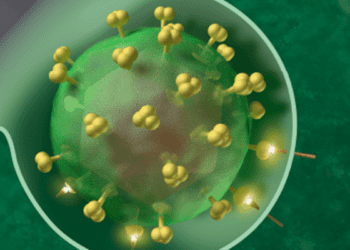Maternal postpartum depressed associated with impaired speech development in offspring
1. Subclinical depressed mood in postpartum mothers is negatively correlated with infant speech perception trajectories
2. More depressed mood in postpartum mothers was associated with weaker longitudinal changes of infants brain responses to syllable pitch from the ages of 2 months to 6.5 months
Evidence Rating Level: 2 (Good)
Study Rundown: Infancy is an important period for language development and past studies have shown that postpartum depression in mothers can have a negative impact on language development in a child. This study sought to expand upon by literature by examining if depressed maternal mood at subclinical levels 2 months after birth was associated with infant speech perception trajectories from ages 2 to 6.5 months. This cohort study analyzed mother and infancy pairs from German monolingual families. All pairs were otherwise healthy and from mid-high socioeconomic backgrounds. Mothers completed a mood and stress questionnaire at two months after birth and infant speech perception was assessed using electrophysiological assessment at 2 and 6.5 months. Analyses were done to see if there were any correlations between maternal mood and language trajectories between 2 and 6.5 months. It was found that more depressed maternal mood was associated with a weaker maturation in mismatch response to the syllable pitch deviant between 2 and 6.5 months, suggesting there is an association between depressed maternal mood and infant speech perception. Study findings further corroborate literature in finding a possible association between maternal mood disorders and impaired language development in offspring. This reaffirms the importance of providing holistic supportive care to mothers suffering from post-partum depression, though further studies will be required to determine if that can reverse the effects of depressed mood.
Click here to read the study in JAMA Open
Relevant Reading: The Infancy of the Human Brain
In-depth [Retrospective cohort study]: It is well known that language foundations are established early in life and can be associated with a risk of language impairments later in life. The goal of this study was to see if maternal mood had any association with infant language development. This longitudinal cohort study consisted of 46 mother-infant pairs, that were monolingual and German speaking. Maternal mood was assessed using the Edinburgh Postnatal Depression Scale (EPDS). Scores on the scale range from 1-30, with a score of 13 points or higher indicating a high probability of clinical depression. Maternal stress was assessed using the Perceived Stress Scale (PSS-10), with higher scores indicate higher perceived stress. Infant speech perception was examined via electrophysiological markers. These markers were used to test mismatch responses to speech stimuli. As the brain develops, these mismatch responses are expected to go from more positive in amplitude, indicating an immature response, to more negative in amplitude, indicating a more mature response. A delayed shift in mismatch response is associated with a risk of developing language impairments in the future. Electrophysiology experiments were done in infant friendly rooms, and a standard stimulus was used with the syllable /ba/. Deviants, such as the syllables /ga/, /bu/, raised pitches and lengthened vowels were used. 800 stimuli were presented to the infants, with 400 standards and 100 of each deviant. Electroencephalograms were recorded from 21 active electrodes at standard positions and mismatch responses to the variants were examined. SPSS software was used to perform statistical analysis and significance of mismatch response was tested by comparing the mean event related potential amplitude of the standard stimulus with the deviant stimulus. Moderation analyses was used to assess the association between postpartum maternal mood and longitudinal changes in infant speech perception. Infants showed overall maturation between the ages of 2 and 6.5 months, and infants of more depressed mothers had less mature responses at both ages. Significant changes from a more positive, immature amplitude to a more negative, mature amplitude (R2 = 0.12; 95% CI, 0.00-0.32; P = .04) were seen in syllable pitch mismatch responses between the two age groups. Maternal EPDS scores were also significantly associated (coefficient, 0.68; 95% CI, 0.03-1.33; P = .04) with the syllable pitch mismatch response change, suggesting that mismatch response development stagnates or becomes more immature at the age of 6.5 months with more depressed maternal mood. Although the small sample size and lack of studying infant directed speech are limitations to this study, this study does show the importance of maternal mood and its association with language development.
Image: PD
©2022 2 Minute Medicine, Inc. All rights reserved. No works may be reproduced without expressed written consent from 2 Minute Medicine, Inc. Inquire about licensing here. No article should be construed as medical advice and is not intended as such by the authors or by 2 Minute Medicine, Inc.









